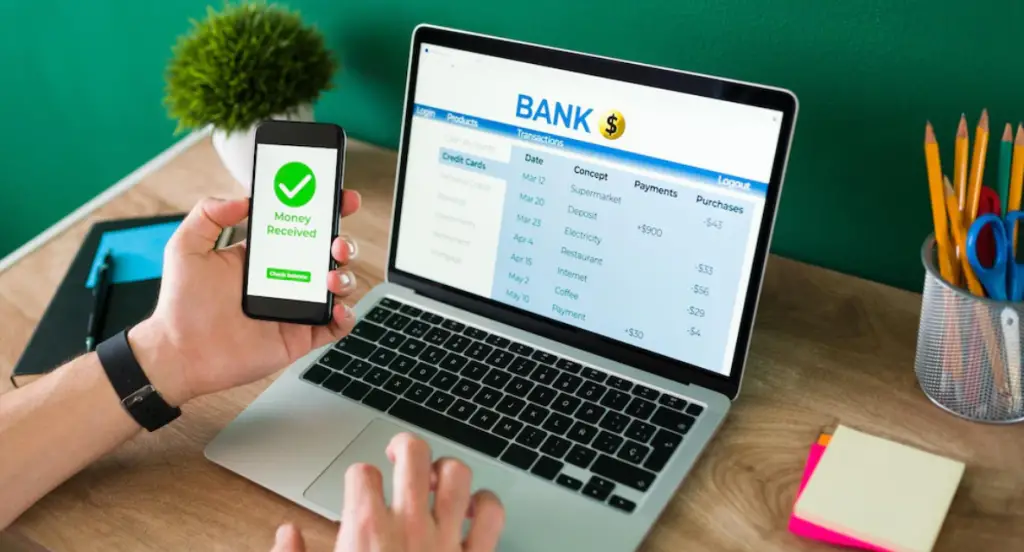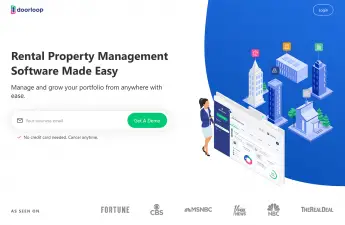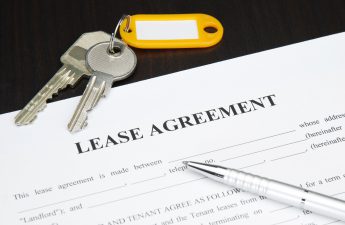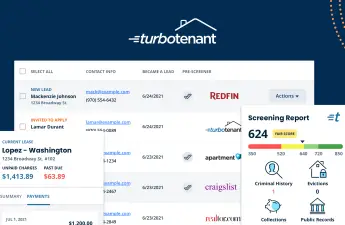Rental property is a business, and just like any business, it’s best to have a separate bank account for rental property. Keeping personal funds separate from business funds helps landlords better track income and expenses, simplifying accounting and bookkeeping. Moreover, by avoiding the commingling of funds, you not only protect your assets but also make things easier for yourself at tax time. Let’s take a look at some of the benefits of having a separate bank account for rental property and how you can choose one for your rental business.
Why You Should Have a Separate Bank Account for Rental Property
Here’s why you should set up a separate bank account for rental property:
1. Avoid commingling of funds
Commingling happens when someone combines their personal funds with business funds. In many states, landlords aren’t legally allowed to commingle security deposits with their other assets. This rule was designed to protect renters because the security deposit actually belongs to the renter throughout the duration of the lease.
Even if it may not always be illegal, commingling is broadly considered a bad business practice. Using a separate bank account for rental property helps landlords avoid commingling and comply with state laws by keeping business funds separate.
2. Establish credibility
In order to operate your rental properties more effectively, you want to treat your operations like a business, and not simply a hobby. A dedicated bank account for rental property helps create a more professional and credible image in front of tenants and real estate investors. As a result, you’ll be able to win their trust and keep tenants for longer periods of time by building great relationships and rapport.
3. Enjoy rewards and extra features
Some landlord bank accounts allow you to earn potential rewards for spending on landlord-specific categories (such as cash back at home improvement stores) and high annual percentage yield (APY) on your savings. Take advantage of these benefits with a separate bank account for rental property. You can also track rent collection, set up tenant reminders, late payment fees, and invoicing – all in your banking platform.
For example, Baselane is currently offering a $150 bonus to new users:
4. Scale your rental business
The importance of having a separate bank account for each rental property becomes more significant once you start scaling your portfolio. When you’re growing the number of rentals or adding complexity (such as with a short-term rental or a multi-family property), you will certainly have more transactions to manage. More transactions increase both the significance of maintaining accurate books and the amount of work you need to do to manage your funds.
5. Safeguard personal assets
With a separate rental property bank account, landlords can protect their personal assets. Keep in mind that there are no special protections for commingled accounts.
For example, suppose you are involved in a legal case and your bank account is frozen. Even if the account has both business and personal funds, you won’t be able to access your personal funds and all money will likely be considered part of your business account. Keeping separate bank accounts ensures you can maintain access to your personal finances when you need them the most.
6. Speed up and simplify accounting
With separate accounts, most landlords find that their financial reports are more precise and there is less manual work to do. Instead of having to review a lengthy and complex bank statement every month and figuring out which transaction goes where, you can save time and money and easily keep track of income and expenses with a separate bank account for rental property. Some landlord banking tools also allow you to tie purchases directly to a property, speeding up your rental property accounting.
7. Streamline tax preparation
A separate bank account for rental property gives you easy access to tax-ready financials at the end of each year. This can help significantly reduce tax preparation fees. Moreover, a separate bank account makes it easier to claim all your relevant expenses and reduce your tax burden, saving you money.
![]() Also Read: Rental Property Taxes: 8 Tax Tips for Landlords
Also Read: Rental Property Taxes: 8 Tax Tips for Landlords
8. Obtain financial help
Having a clear division between your personal and business finances also makes it much easier and cheaper to seek financial help. Be it a part-time bookkeeper or a CPA who helps with your tax filings, they will be more willing to work on your accounts if they know you have separate personal and business accounts.
9. Integrate your rent collection
Many of the best landlord-specific bank account allow you to integrate your online rent payments directly to your rental property bank account. Rent gets paid directly into your account and your property management software tracks the payment automatically for you. Baselane, Azibo, and Stessa are all platforms that combine property management tools with a bank account for rental property. Read here to learn the similarities and differences and see which is right for you.

How Many Separate Bank Accounts for Rental Property Should You Have?
Often it is sufficient to have one separate account for multiple properties. As your portfolio grows and the number of monthly transactions increases, you can use a property management and accounting software tool to help you stay organized and correctly categorize transactions. However, if you own properties under multiple different entities or LLCs, you should have a separate account for each.
Some landlords even like to have one bank account for each property for better organization. On the other hand, others like to have separate savings and checking accounts for each property, i.e. checking for outgoing expenses and savings to hold reserve funds for unexpected repairs or capital expenses.
As mentioned earlier, some local laws require landlords to hold security deposits in a separate account as well. So make sure you are aware of any particular requirements for holding security deposits that may apply to you. Think about your cash reserves and monthly transactions to determine how many accounts will work best for you.
How to Choose a Bank Account for Rental Property
When it comes to choosing a bank account for rental property, you might want to look at a number of things, such as the monthly or subscription fees, transaction fees (especially for collecting rent), interest rate/APY, ATM fees, minimum balance requirements, and opening deposit requirements.
You may also want to look at features special to landlords such as integration with accounting software and rent collection, direct deposit capabilities for rent, virtual accounts, loan products tailored to real estate investors, international banking to transfer funds if you are an international investor, cash back rewards, and credit/debit card availability.
Check out our recent post: Landlord Banking: What is the Best Bank Account for Landlords? to learn more about how to choose the right bank account for you.
Rental Property Bank Account: Landlord Gurus Takeaway
Opening a separate bank account for rental property offers a number of benefits to landlords. It simplifies your accounting and bookkeeping, saving you money and time, especially during tax season. It’s a great way to get your investment property finances organized and under control.
Moreover, a separate account helps you avoid the commingling of funds and protects your personal assets. As your personal and business finances are already separated, your tax preparation becomes a breeze and it also becomes much cheaper to hire financial help. You come across as a credible and professional landlord, which helps you maintain long-term relationships with good tenants.
If you have one rental property, you might be managing fine with your personal account. However, if you have plans to scale up your business and grow your property portfolio, things could quickly get out of control. Keeping your property funds separate means you’ll have a much better idea of the cash you have available in your business to invest in growing your portfolio.
![]() Also Read: Landlord Banking: Landlord Gurus Experience
Also Read: Landlord Banking: Landlord Gurus Experience
Disclosure: Some of the links in this post are affiliate links and Landlord Gurus may earn a commission. Our mission remains to provide valuable resources and information that helps landlords manage their rental properties efficiently and profitably. We link to these companies and their products because of their quality, not because of the commission.




